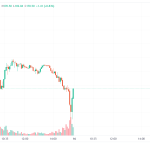Mindset, skill development, adaptability, balanced decision-making traders can significantly enhance their effectiveness achieve long-term success
Effective Trading Principles for Long-Term Success
The principles you've outlined are crucial for effective trading and personal development as a trader. Each one addresses a key aspect of achieving long-term success by focusing on skill development, adaptability, and psychological discipline. Here’s a deeper dive into each of these principles and how you can apply them:
- Staying Positively Focused on Goals:
- Dynamic Goal Achievement: Shift your focus from fear-based reactions to goal-oriented actions. Define clear, specific goals for your trading journey and regularly remind yourself of them. Use visualization techniques to reinforce positive outcomes and develop a mindset that emphasizes what you want to achieve rather than what you want to avoid.
Focusing on Skill Development:
- Skills Over Money: Understand that money is a by-product of effective trading skills. Focus on learning and mastering skills like technical analysis, risk management, and emotional control. Establish a routine for skill practice and improvement, and view money as a result of your expertise rather than a direct goal.
Adapting to Market Changes:
- Flexibility: Develop the ability to quickly adapt to changing market conditions by staying informed about economic events, market trends, and other relevant factors. Use tools like market news feeds and economic calendars to stay updated. Regularly review and adjust your trading strategies based on current market conditions.
Understanding and Expanding Risk Comfort Level:
- Risk Management: Identify your personal risk tolerance and start with a level that you are comfortable with. Gradually increase your risk exposure as you gain experience and confidence, while maintaining an objective perspective on market risks. Use risk management tools like stop-loss orders to protect against excessive losses.
Executing Trades Promptly:
- Timely Execution: Develop a systematic approach to trade execution. Utilize limit orders and automated trading tools to help you act quickly when opportunities arise. Practice making decisions under simulated conditions to build confidence and speed.
Letting the Market Determine Success:
- Market-Based Assessment: Instead of defining success based on personal expectations, let market conditions dictate what is enough. Use market data, such as price action and volatility, to guide your trading decisions. Adjust your targets based on real-time market feedback rather than personal values.
Structuring Beliefs to Control Perception:
- Belief Systems: Reflect on how your beliefs about the market influence your trading decisions. Work on aligning your beliefs with market realities by challenging any biases or misconceptions. This involves continuous learning and adjusting your mental frameworks to better match market behavior.
Maintaining Objectivity:
- Objective Perspective: Cultivate a habit of reviewing your trades and market conditions without emotional bias. Use objective criteria and data to make trading decisions. Regularly journal your trading experiences and decisions to maintain a clear, objective perspective.
Recognizing and Acting on Intuition:
- Intuitive Insights: Develop a balanced approach where intuition complements analytical skills. Reflect on past instances where intuition has been accurate and identify patterns or triggers that led to these insights. Practice combining intuition with data analysis to make informed decisions.
Conclusion
These principles goal-focused mindset, skill development, adaptability, and balanced decision-making traders can significantly enhance their effectiveness and achieve long-term success. Emphasizing clear goals, continuous learning, and flexibility enables you to navigate market changes with confidence. Adopting disciplined risk management, prompt execution, and objective assessment ensures that you make informed decisions while minimizing emotional bias. Combining analytical rigor with intuitive insights further refines your trading strategy. Embracing these principles fosters a well-rounded approach to trading that balances expertise, adaptability, and emotional control for sustained performance.
Leave a comment
Your email address will not be published. Required fields are marked *



